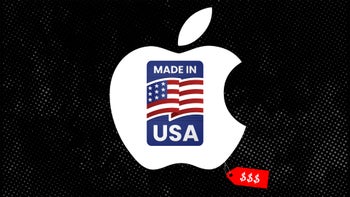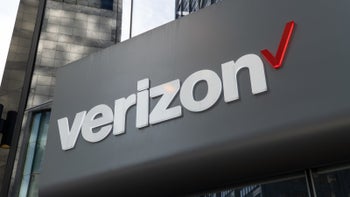iPhone sticker shock: Will tariffs force Apple to break its iPhone pricing streak? (Updated)

Uncertainty is looming when it comes to the pricing of one of today's most popular and recognizable devices––the iPhone.
Can Apple move production to the US?
If Apple raises prices due to tariffs right now, would they go down if the tariff increases are overturned?
Well, that's the million, or more like trillion-dollar question.
As the current US administration is embroiled in a reciprocal tariff war with major trading partners like China, Vietnam, and India, and new developments take place almost hourly, one thing that's even more uncertain is whether Apple's iPhones will suddenly get more expensive overnight.
Starting at 12.01am EST on Wednesday, April 9, the US will be hitting China with 104% tariffs, Vietnam with 46%, and India with 27% on goods exported to the US, which coincidentally includes Apple's iPhones, which are physically assembled in those countries and then essentially imported to the domestic US market. This means that you might pay a lot more for an iPhone very soon.
UPDATE: Tariffs towards China have been further hiked to 125%.
UPDATE: Tariffs towards China have been further hiked to 125%.
An end to Apple's pricing consistency
Is Apple doomed to be one of the major casualties of the tariff war?
Devices assembled in China will be hit with heavier tariffs, and the majority of iPhones are still largely manufactured in China. According to recent reports by UBS Investment Research and relayed by CBS News, the price of most iPhones manufactured in China could rise by at least 29%.
This means that a base iPhone 16 Pro Max could start at around $1,549 to cover for the new tax, up from its current starting price tag of $1,199.
At the same time, iPhones assembled in India might only jump 12% in price. For example, an iPhone 16 Pro might "only" jump from $999 to $1,119, which sounds a bit more stomachable. However, the larger majority of iPhones are still assembled in China.
That could be a major blow to Apple's bottom-line and abruptly end the company's usual policy of keeping iPhone prices unchanged with every new generation. Cupertino has been soaking any fluctuations in international tariffs and the yearly inflation swings all that time, always keeping the prices of its iPhones consistent and easily predictable.
As a result, iPhone pricing has been extremely consistent over the past five years, with a noteworthy exception to the rule being the iPhone 15 Pro Max, which scored a $100 price increase, but also included double the storage in the base version.
As a result, iPhone pricing has been extremely consistent over the past five years, with a noteworthy exception to the rule being the iPhone 15 Pro Max, which scored a $100 price increase, but also included double the storage in the base version.
However, such a major tariff price hike could easily end that.
While we still don't know how Apple will react to the new fees and what its policy would be, there's an extremely high chance that the new tariffs will be passed down to the customers, as Apple most certainly wouldn't soak up such a large price hike on its own.
Here's what the latest iPhones cost at launch and how much more they might end up costing if we factor in the extra 29% potential tariff hike.
| iPhone Model | Price at launch | Potential price after tariffs |
|---|---|---|
| iPhone 16 Pro Max 256GB | $1,199 | ~$1,559 |
| iPhone 16 Pro 128GB | $999 | ~$1,299 |
| iPhone 16 Plus 128GB | $899 | ~$1,169 |
| iPhone 16 128GB | $799 | ~$1,039 |
| iPhone 16e 128GB | $599 | ~$779 |
How smartphone tariffs work
Double it and pass it to the next person
Unlike other commodities and wares, smartphones are classified under HS code 8517.13.0000 in the U.S. customs tariff schedule. This designation combines smartphones and similar smart devices, like tablets, smartwatches, computers, and so on.
What this means in reality is that phones are taxed as whole finished products and are not broken down to the value of their individual components. Apparently, this is unlike some goods like clocks or car parts, where different tariffs might apply to specific components, the phone you are buying is always treated as a single device at the import customs.
So when an iPhone is imported, then 100% of the tariff is imposed on the country where it's assembled, regardless where its chipset, display, battery, or housing originate from. This means that even if all the hardware components get imported from the US to China, where they are only assembled, the resulting brand-new iPhone will still be considered of Chinese origins and the respective customs tariffs will apply.
Can Apple move production to the US?
The $3,500 "Made in America" iPhone
Theoretically, yes. President Trump apparently believes that Apple could shift production to the US, so this means it's all settled then?
Well, reality is a bit more complicated.
Well, reality is a bit more complicated.
As The Verge reminds, both Apple co-founder Steve Jobs and current CEO Tim Cook have reiterated for years that iPhone production in the US is just not feasible.
The reason for that is the lack of well-trained personnel in the US, while China has gradually evolved from a low-cost assembly conveyor to a high-tech hub with just the right type of employees that are needed for iPhone assembly. Tim Cooksaid at the Fortune Global Forum in 2017.
"China stopped being the low labor cost country many years ago and that is not the reason to come to China from a supply point of view. The reason is because of the skill and the quantity of skill in one location, and the type of skill. It is like the products we do require really advanced tooling and the precision that you have to have in tooling and working with the materials that we do are state-of-the-art, and the tooling skill is very deep here. You know in, in the US, you could have a meeting of tooling engineers, and I’m not sure we could fill the room — in China you could fill multiple football fields." - Tim Cook at the Fortune Global Forum, 2017
In reality, it would realistically take years to establish a well-oiled supply chain, but it's not time that's the problem, but labor costs.
A iPhone Pro assembled in any US state would easily cost at least $3,500, a hefty 350% increase over its $999 price tag at launch, Wedbush tech analyst Dan Ives claims. The reason for that are the labor costs, of course, which are significantly higher than those in China, Vietnam, India, all countries that Apple has manufacturing business.
Another opportunity shared by many an analyst is that Apple could essentially try to shake up its supply and manufacturing chain as much as possible to offset the effect of the tariffs as much as possible.
"Saying we can just make this in the USA is a statement that incredibly understates the complexity of the Asia supply chain and the way electronics, chips, semi fabs, hardware, smartphones, etc. are made for U.S. consumers over the last 30 years," Dan Ives revealed in a report.
Another opportunity shared by many an analyst is that Apple could essentially try to shake up its supply and manufacturing chain as much as possible to offset the effect of the tariffs as much as possible.
Minimizing the still domineering position of China in the iPhone manufacturing line and shifting more of the iPhone production to India could be one of the ways for Apple to avoid a big portion of the looming tariff danger.
If Apple raises prices due to tariffs right now, would they go down if the tariff increases are overturned?
Deep inside, we all know the answer
Well, that's the million, or more like trillion-dollar question.
First things first, Apple still hasn't reacted to the dynamic international market situation and hasn't updated the pricing of its latest iPhones on its online store. Such a potential large price increase also warrants at least a press release detailing the reasons for the pricing change.
If Apple decided to pass the brunt of the tariff increase to its customers, prices will certainly go up, but there's always a chance those prices wouldn't go down even if the tariffs get overturned in the next week, month, or with the next administration in early 2029.
One thing is for certain––the era of predictable iPhone prices might be coming to an end.













Things that are NOT allowed: